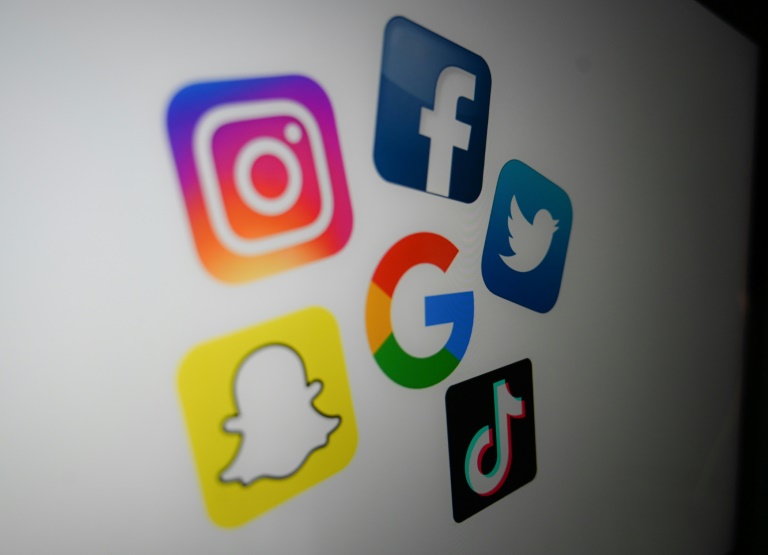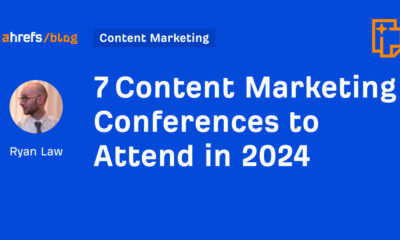SOCIAL
EU designates TikTok, other online platforms for stricter rules

The EU’s new strict rules affect platforms including services from Amazon, Apple, Google, Meta and Microsoft – Copyright AFP ISAAC LAWRENCE
Raziye Akkoc
The European Union on Tuesday designated 19 online platforms, including Instagram, TikTok and Twitter, as having user numbers so big they will come under stricter regulatory rules for content.
The list — on which services from Amazon, Google, Meta, Instagram and Microsoft also feature — all have more than 45 million monthly active users.
That puts them in a category under a new EU law, known as the Digital Services Act (DSA), imposing measures from August such as annual audits and a duty to effectively counter disinformation and hate content.
In four months’ time, “these platforms and search engines will not be able to act as if they were ‘too big to care’,” Thierry Breton, the EU’s internal market commissioner, said in a statement.
“This new supervision system will cast a wide and tight net and catch all points of failure in a platform’s compliance,” he added.
Platforms meeting the 45-million-plus threshold include Twitter, owned by US billionaire Elon Musk; Alphabet’s Google Search, Google Maps, Google Shopping and Google Play units as well as its YouTube subsidiary; and Meta’s Facebook and Instagram.
Others are Microsoft’s LinkedIn, Apple’s iOS App Store, online encyclopedia Wikipedia, messaging app Snapchat and creative image website Pinterest.
Under the DSA, they are categorised as a “Very Large Online Platform” (VLOP) or a “Very Large Online Search Engine” (VLOSE).
Most of the companies on the list are US-based, but Chinese-owned platforms TikTok and e-commerce site AliExpress also feature.
The commission also listed German online fashion retailer Zalando.
– Huge fines –
Breton told journalists on Tuesday his team will hold “stress tests” to check Twitter’s compliance readiness “at the end of June”.
He added that TikTok had also expressed an interest in cooperating to ensure compliance.
Tuesday’s announcement follows a deadline in February for online companies to publish user figures in Europe.
The DSA has a wide range of objectives, including forcing platforms to better protect children, strengthen transparency around digital services, prohibit the sale online of unsafe goods and allow users to have greater choice when online in the EU.
The rules allow the EU to impose fines of up to six percent of the platforms’ annual global sales for repeated infringements.
By August 25, 2023 the 19 platforms must have an independent compliance system in place and give their first annual risk assessment to the European Commission, including how they plan to handle content on mental health and gender-based violence.
There will then be an independent audit and oversight by the commission.
Commission vice president Margrethe Vestager said the designations were a “huge step forward” for the DSA to bring “meaningful transparency and accountability of platforms and search engines and give consumers more control”.
Online platforms declaring themselves below the 45-million user threshold include Swedish music-streaming site Spotify, US dating app Tinder and home-rental platform Airbnb.
Breton said “four to five” more platforms could be added to the list “in the coming weeks” but refused to name which ones.
The DSA is one of two major laws the EU passed last year to rein in digital platforms to protect EU users.
The special obligations for very large platforms are in addition to the DSA rules that will apply to all from February 17, 2024.
The second law, the Digital Markets Act, prohibits anti-competitive behaviour by so-called “gatekeepers” of the internet.
SOCIAL
Snapchat Explores New Messaging Retention Feature: A Game-Changer or Risky Move?

In a recent announcement, Snapchat revealed a groundbreaking update that challenges its traditional design ethos. The platform is experimenting with an option that allows users to defy the 24-hour auto-delete rule, a feature synonymous with Snapchat’s ephemeral messaging model.
The proposed change aims to introduce a “Never delete” option in messaging retention settings, aligning Snapchat more closely with conventional messaging apps. While this move may blur Snapchat’s distinctive selling point, Snap appears convinced of its necessity.
According to Snap, the decision stems from user feedback and a commitment to innovation based on user needs. The company aims to provide greater flexibility and control over conversations, catering to the preferences of its community.
Currently undergoing trials in select markets, the new feature empowers users to adjust retention settings on a conversation-by-conversation basis. Flexibility remains paramount, with participants able to modify settings within chats and receive in-chat notifications to ensure transparency.
Snapchat underscores that the default auto-delete feature will persist, reinforcing its design philosophy centered on ephemerality. However, with the app gaining traction as a primary messaging platform, the option offers users a means to preserve longer chat histories.
The update marks a pivotal moment for Snapchat, renowned for its disappearing message premise, especially popular among younger demographics. Retaining this focus has been pivotal to Snapchat’s identity, but the shift suggests a broader strategy aimed at diversifying its user base.
This strategy may appeal particularly to older demographics, potentially extending Snapchat’s relevance as users age. By emulating features of conventional messaging platforms, Snapchat seeks to enhance its appeal and broaden its reach.
Yet, the introduction of message retention poses questions about Snapchat’s uniqueness. While addressing user demands, the risk of diluting Snapchat’s distinctiveness looms large.
As Snapchat ventures into uncharted territory, the outcome of this experiment remains uncertain. Will message retention propel Snapchat to new heights, or will it compromise the platform’s uniqueness?
Only time will tell.
SOCIAL
Catering to specific audience boosts your business, says accountant turned coach

While it is tempting to try to appeal to a broad audience, the founder of alcohol-free coaching service Just the Tonic, Sandra Parker, believes the best thing you can do for your business is focus on your niche. Here’s how she did just that.
When running a business, reaching out to as many clients as possible can be tempting. But it also risks making your marketing “too generic,” warns Sandra Parker, the founder of Just The Tonic Coaching.
“From the very start of my business, I knew exactly who I could help and who I couldn’t,” Parker told My Biggest Lessons.
Parker struggled with alcohol dependence as a young professional. Today, her business targets high-achieving individuals who face challenges similar to those she had early in her career.
“I understand their frustrations, I understand their fears, and I understand their coping mechanisms and the stories they’re telling themselves,” Parker said. “Because of that, I’m able to market very effectively, to speak in a language that they understand, and am able to reach them.”Â
“I believe that it’s really important that you know exactly who your customer or your client is, and you target them, and you resist the temptation to make your marketing too generic to try and reach everyone,” she explained.
“If you speak specifically to your target clients, you will reach them, and I believe that’s the way that you’re going to be more successful.
Watch the video for more of Sandra Parker’s biggest lessons.
SOCIAL
Instagram Tests Live-Stream Games to Enhance Engagement

Instagram’s testing out some new options to help spice up your live-streams in the app, with some live broadcasters now able to select a game that they can play with viewers in-stream.
As you can see in these example screens, posted by Ahmed Ghanem, some creators now have the option to play either “This or That”, a question and answer prompt that you can share with your viewers, or “Trivia”, to generate more engagement within your IG live-streams.
That could be a simple way to spark more conversation and interaction, which could then lead into further engagement opportunities from your live audience.
Meta’s been exploring more ways to make live-streaming a bigger consideration for IG creators, with a view to live-streams potentially catching on with more users.
That includes the gradual expansion of its “Stars” live-stream donation program, giving more creators in more regions a means to accept donations from live-stream viewers, while back in December, Instagram also added some new options to make it easier to go live using third-party tools via desktop PCs.
Live streaming has been a major shift in China, where shopping live-streams, in particular, have led to massive opportunities for streaming platforms. They haven’t caught on in the same way in Western regions, but as TikTok and YouTube look to push live-stream adoption, there is still a chance that they will become a much bigger element in future.
Which is why IG is also trying to stay in touch, and add more ways for its creators to engage via streams. Live-stream games is another element within this, which could make this a better community-building, and potentially sales-driving option.
We’ve asked Instagram for more information on this test, and we’ll update this post if/when we hear back.
-

 WORDPRESS7 days ago
WORDPRESS7 days ago13 Best HubSpot Alternatives for 2024 (Free + Paid)
-

 MARKETING6 days ago
MARKETING6 days agoAdvertising in local markets: A playbook for success
-

 SEARCHENGINES6 days ago
SEARCHENGINES6 days agoGoogle Core Update Flux, AdSense Ad Intent, California Link Tax & More
-

 SEARCHENGINES5 days ago
SEARCHENGINES5 days agoGoogle Needs Very Few Links To Rank Pages; Links Are Less Important
-

 MARKETING5 days ago
MARKETING5 days agoHow to Use AI For a More Effective Social Media Strategy, According to Ross Simmonds
-

 PPC4 days ago
PPC4 days ago10 Most Effective Franchise Marketing Strategies
-

 SEARCHENGINES3 days ago
SEARCHENGINES3 days agoGoogle Won’t Change The 301 Signals For Ranking & SEO
-

 SEO5 days ago
SEO5 days agoHow to Become an SEO Lead (10 Tips That Advanced My Career)













